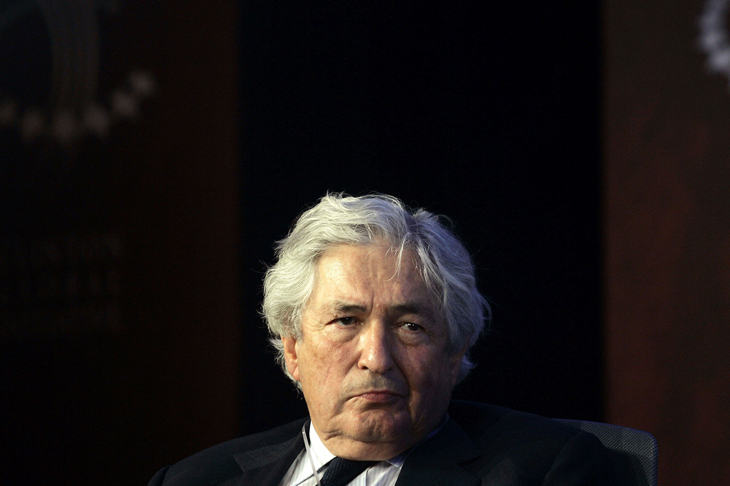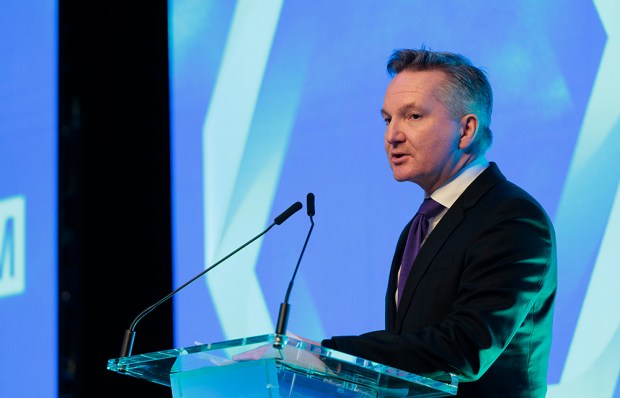Wolfensohn’s success was Australia-based
The glowing world-wide obituaries detailing the remarkable achievements of expatriate Australian James D. Wolfensohn who died last month at 86 in New York, naturally focussed on his international standing as a financial, cultural and philanthropic leader, particularly his (controversial) ten years at the head of the World Bank. There was little mention of his Australian business successes. But it all started in Australia which provided, he said, ‘the cornerstone of my international career’. And if Australia gave him a friendly environment in which to become a merchant banker, it was an unfriendly one that ultimately sent him overseas to become rich and famous.
At 27 as a Sydney University Law graduate with some years’ experience at the top legal firm Allen, Allen and Hemsley before leaving to do a Harvard MBA and gaining some overseas business experience, his return to Australia in 1962 with his newly acquired American wife resulted in a far from successful first foray into running his own financial house. It was, as he described in his autobiography A Global Life, a ‘rocky start’ where he lost half his funding within his first year due to ‘cheap mistakes that battered my pride and brought me down to earth… my confidence was shaken…and things were not looking promising’.
So when he received an offer from leading Sydney stockbroking firm Ord Minnett, which had advertised for a Harvard MBA to join them as a member of the Sydney Stock Exchange, he accepted and then was ‘surprised and delighted’ when the Bank of NSW (now Westpac) lent him unsecured the $40,000 needed to buy the stock exchange seat. Describing the loan as ‘a generous show of faith that I desperately needed’, he added that he had always thought that ‘Charles Ord may have privately guaranteed the loan…that was pivotal in my career because it put me in the mainstream of the emerging financial markets in Australia…. At the time I did not realise what a tremendous opportunity Australia afforded me to grow my skills… building the new investment banking side of the (Ord’s) business involving mergers, acquisitions and debt raisings for corporate clients… (It) was the best possible place I could be as it allowed me to play in an economy that was small by world standards but had some big league players and financial needs on a world scale’ – particularly in natural resources projects.
During Wolfensohn’s first two years at Ord Minnett, he says it became obvious that he was more adept at corporate finance than at buying and selling shares for clients. So when Ords entered a merchant banking joint venture with John Darling and international partners, he moved from being an Ords partner to being one of four joint managing directors of Darlings. This new venture pioneered overseas borrowings for Australian companies and offered creative vehicles for investment. ‘For about five years I was in luck and in demand. Mining was booming, resource financing was highly sought after and I had a role in fighting some of the iconic battles in corporate Australia….My ambition had no bounds’.
But his time in Australia was coming to an end. ‘We might never have left Australia – or at least not so soon – had it not been for an unanticipated and ugly episode at Darlings’. Wolfensohn’s reputation was at risk when he was accused by a fellow director of Darlings, John Broinowski, of using insider information that he would have learned at Darlings for a Canadian company in which Wolfensohn was involved, to make a hostile takeover bid (‘without my help and without my knowledge’ said Wolfensohn) for Queensland’s Mt Morgan copper and gold mine, of which Broinowski was chairman. They sued each other, only to have the matters withdrawn with costs against Broinowski. But Darling’s image had been affected by the spectacle of such ill-feeling between two of its managing directors and Wolfensohn admitted he should have handled the takeover offer differently and considered the predictable effects on the firm. As he ‘no longer felt comfortable’ at Darlings he advised its major shareholder, Schroders in London of his intention to leave both Darlings and Australia. To his surprise, the response was to suggest Wolfensohn come to London to become a director of Schroders. It was a spectacular way to mark, at the age of 33, the end of James D. Wolfensohn’s Australian life. Then came New York – and the world.
Despite all the emphasis on her being a woman in obituaries celebrating her life, Dame Margaret Guilfoyle never played the women’s card, according to her colleague Tony Staley. Gender was clearly not the most important feature of Guilfoyle’s notable success as a politician. In addition to her intelligence, professional skills, strong will, compassion and common sense, a key lies in her having had real-life experience before entering parliament at 45 – as did I, unlike most of the current crop whose relatively few pre-parliamentary working years have largely been spent as political or union apparatchiks. As a consequence, as her boss Malcolm Fraser said, in her several successful senior ministerial roles ‘She was not a captive of the bureaucracy’. This was also my experience, as a backbencher in a very marginal seat in the late 1970s, when I had made submissions to her as Minister for Social Security for funding for several integrated retirement complexes in my electorate. They were all eventually rejected by the department on the basis that they did not meet the required minimum of local aged population as determined by the latest census. When I pointed out that the census figures were then six years out of date and that current statistics showing the strong rise in the aged population in my area were readily available from the department’s own quarterly figures, she readily agreed that I was right and her department was wrong. Unfortunately all the available funding had by then been allocated, but Margaret told me that if I had projects ‘shovel-ready’ by the following May, she would ensure that they would have priority for any allocated funds that remained unspent. The funds flowed; the projects went ahead as she was true to her word. Now that’s an impressive politician.
Got something to add? Join the discussion and comment below.
Get 10 issues for just $10
Subscribe to The Spectator Australia today for the next 10 magazine issues, plus full online access, for just $10.
You might disagree with half of it, but you’ll enjoy reading all of it. Try your first month for free, then just $2 a week for the remainder of your first year.














Comments
Don't miss out
Join the conversation with other Spectator Australia readers. Subscribe to leave a comment.
SUBSCRIBEAlready a subscriber? Log in